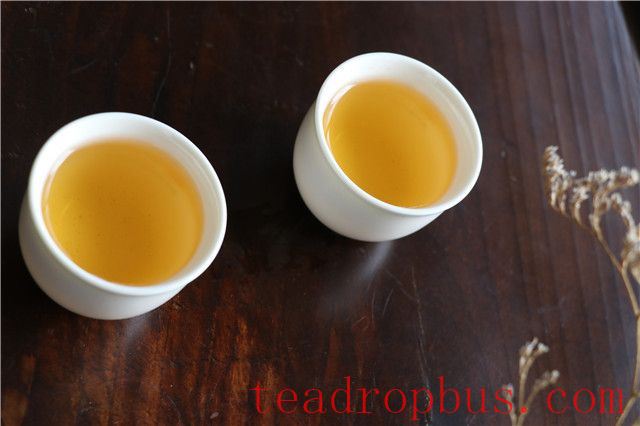Drinking Tea is a habit many Tea enthusiasts have in their daily lives. Pu'er tea, as a popular choice in recent years, has gained recognition for its unique taste and flavor. Many people have started drinking Pu'er tea, but we often overlook some basic knowledge about drinking it. Drinking tea excessively and making it stronger over time can be harmful to your health.

Why is it not advisable to drink strong tea?
1. Strong tea can harm the stomach
The Caffeine content in strong tea is relatively high, which can stimulate the cells lining the stomach, leading to excessive gastric acid production. Drinking strong tea regularly can cause an overproduction of gastric acid, which can be extremely detrimental to individuals with conditions like stomach ulcers or duodenal ulcers.
According to statistics, 10% of avid tea drinkers experience symptoms such as nervousness, anxiety, and shortness of breath after drinking 2-3 cups of strong tea daily. The caffeine in tea has the potential to be addictive, encouraging people to drink stronger tea, which can be detrimental to health.
Faint tea contains less caffeine, which is enough to invigorate and restore energy without causing excessive excitement.
2. Strong tea hinders nutrient absorption
Strong tea contains more tannic acid, which can hinder iron absorption and lead to iron-deficiency anemia. It can also bind with proteins and vitamin B1 in food, causing constipation. Nutrition experts have found that excessive tea consumption can increase urine output, leading to the loss of essential nutrients like magnesium and potassium.

3. Strong tea disrupts sleep
Tea contains 2-5% caffeine, and the caffeine content in strong tea is even higher. A cup of strong tea typically contains around 100 milligrams of caffeine, which can make you feel more awake and reduce sleep.
Why don't some people experience significant sleep disruption after drinking tea? This is because different individuals have varying tolerances and metabolic rates for caffeine. Those with a higher tolerance to caffeine experience a lower level of stimulation, making it easier for them to fall asleep.
4. Strong tea harms blood vessels
Excessive caffeine can cause brain excitement, restlessness, insomnia, palpitations, and other discomforts, potentially leading to increased blood pressure.
Drinking strong tea increases blood volume and can exacerbate symptoms of heart failure and burden the heart. For those with cardiovascular diseases, this can sometimes be life-threatening.

How much Pu'er tea should one drink per day?
The amount of tea consumed depends on factors such as tea-drinking habits, age, health status, living environment, customs, etc. Generally, healthy adults who are accustomed to drinking tea should consume about 12 grams of tea daily, divided into 3-4 brews. For individuals engaged in heavy physical labor, consuming large amounts of food, especially those working in high-temperature environments or exposed to harmful substances, consuming around 20 grams of tea daily is appropriate. Individuals with a diet high in fatty foods and those who smoke or drink alcohol heavily may also benefit from increasing their tea intake. Pregnant women, children, individuals with neurasthenia, and those with rapid heartbeats should reduce their tea consumption.
Pu'er tea is best consumed after meals, with about 1 liter per day being ideal. While results vary from person to person, most individuals with active autonomic nervous systems will notice weight changes within a week. Pu'er tea has effects similar to Traditional Chinese medicine, regulating the body to its optimal state. Therefore, when weight loss reaches a certain point, the tea will stop further fat reduction. In other words, there's no need to worry about losing too much weight, allowing you to drink it with confidence.
For older individuals, especially those over 50 years old, it is best to consume faint tea. Drinking excessive or overly strong tea can result in symptoms such as insomnia, tinnitus, visual disturbances, irregular heartbeat, and frequent urination due to the intake of higher levels of caffeine and other components.